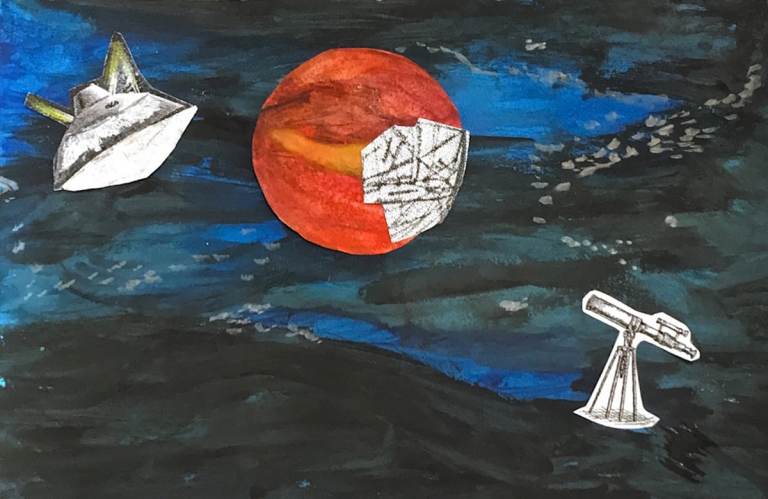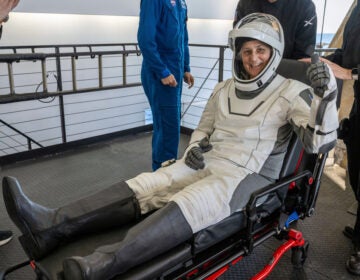Destination: Mars
Listen 49:28
(watercolor by Maiken Scott)
For thousands of years, humans have obsessed over Mars from afar. At first, maybe it was the fact that Mars stands out in the night sky because of its reddish color. But as we learned more about Mars and the conditions there, it was the possibility of life on this distant planet that captured our collective imagination. At its closest, Mars is nearly 40 million miles away from Earth — and we’ve tried for centuries to bridge that distance, using everything from telescopes to flybys and probes. Mars has inspired wild fantasies about distant civilizations and little green men. It’s put a spell on many observers, who hope to unlock its mysteries. On this special episode of The Pulse, we explore what we are learning about Mars, and when we can expect to actually see humans set foot on the red planet.
Also heard on this week’s episode:
- Derrick Pitts, chief astronomer at the Franklin Institute in Philadelphia, talks about our attempts to get closer and closer to the red planet, the important work that’s being done by the Mars rovers, and what it would take to land humans on Mars.
- Some people called it the next great leap in space exploration — others, a suicide mission. But for Dan Carey and Leila Zucker, Mars One was a dream come true. Spearheaded by a Dutch company, Mars One aimed to land ordinary people on Mars by the year 2023, where they’d start the red planet’s first human colony. There was just one catch — it was a one-way trip … and survival was not guaranteed. Reporter Liz Tung talks with Carey and Zucker about what made them want to leave their lives on Earth, and start new ones on Mars.
- We talk with science historian Jordan Bimm about “Mars jars” and the group of exobiologists — scientists who study extraterrestrial biology — who spearheaded early research about life on Mars.
Segments from this episode
WHYY is your source for fact-based, in-depth journalism and information. As a nonprofit organization, we rely on financial support from readers like you. Please give today.






